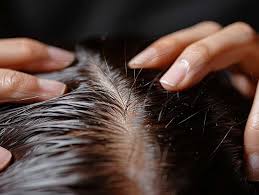
外泌體如何促進頭髮生長?
Exosomes are the latest buzzword in the beauty world, and for good reason! These tiny vesicles are packed with potential benefits for the skin. But did you know that exosomes can also work wonders for your scalp and hair?
While exosomes are gaining popularity in facial rejuvenation, their potential for hair restoration is also being explored. So, how exactly do exosomes contribute to healthier, thicker hair?
The therapeutic principle behind exosomes lies in their ability to "deliver bioactive molecules." These molecules act as messengers, communicating with and regulating the function and behavior of our cells, specifically, our hair follicle cells. This interaction helps to revitalize the cells and maintain the scalp and hair follicles in a healthy state. Simultaneously, exosomes reduce inflammatory responses in the scalp, creating an environment more conducive to hair growth.
Here's a breakdown of the benefits:
-
Stimulation of Hair Follicle Cells: Exosomes interact with hair follicle cells, promoting cell proliferation (growth and multiplication), differentiation (specialization), and overall follicle health. This leads to stronger, more resilient hair.
-
Anti-inflammatory Effects: Exosomes possess anti-inflammatory properties that help reduce inflammation around the hair follicles. This creates a favorable environment for hair growth, as inflammation can hinder the hair growth cycle.
-
Stem Cell Activation: Exosomes can activate dormant stem cells within the hair follicles. These activated stem cells can then generate new hair cells, leading to hair regeneration and thicker, healthier hair.
By influencing these key processes, exosomes offer a promising approach to addressing hair loss and promoting hair growth. They represent a cutting-edge advancement in hair care, harnessing the power of cellular communication to revitalize the scalp and foster healthy, vibrant hair.